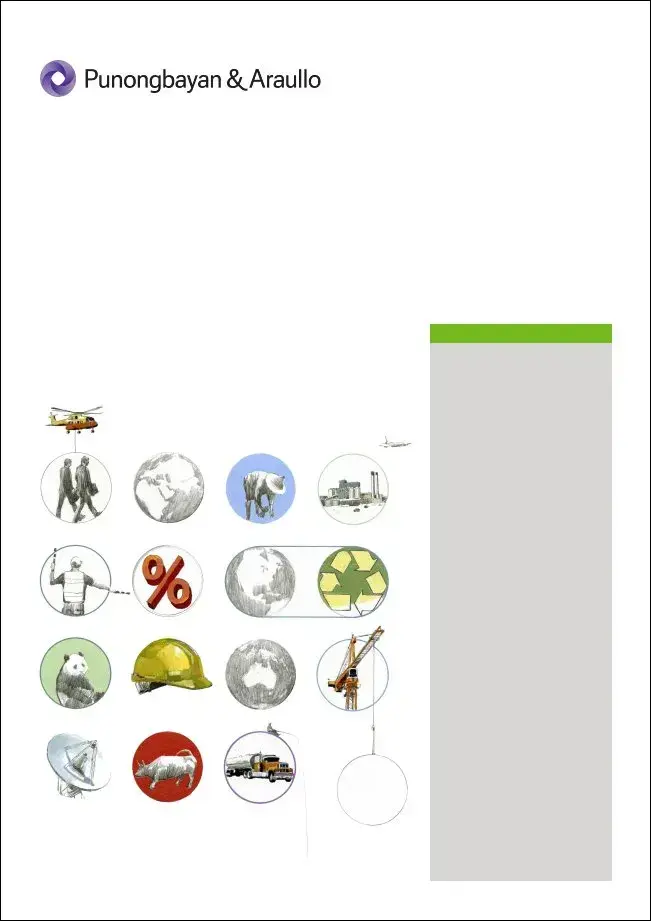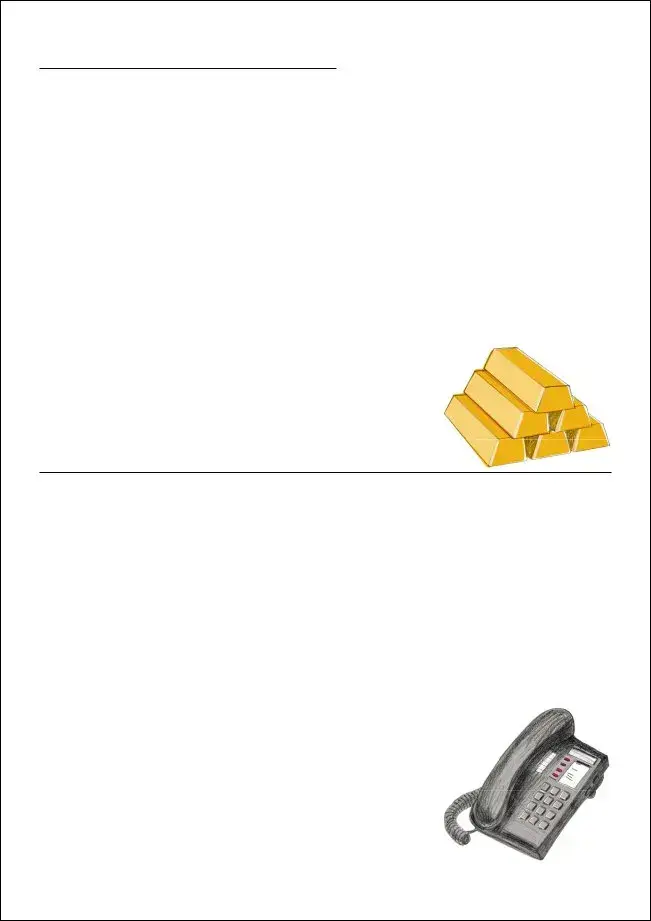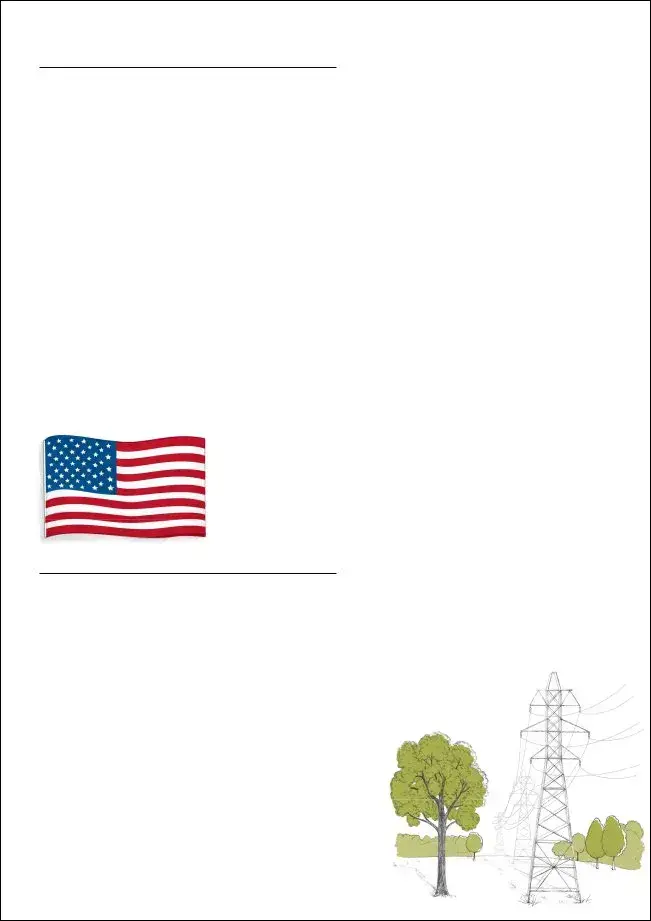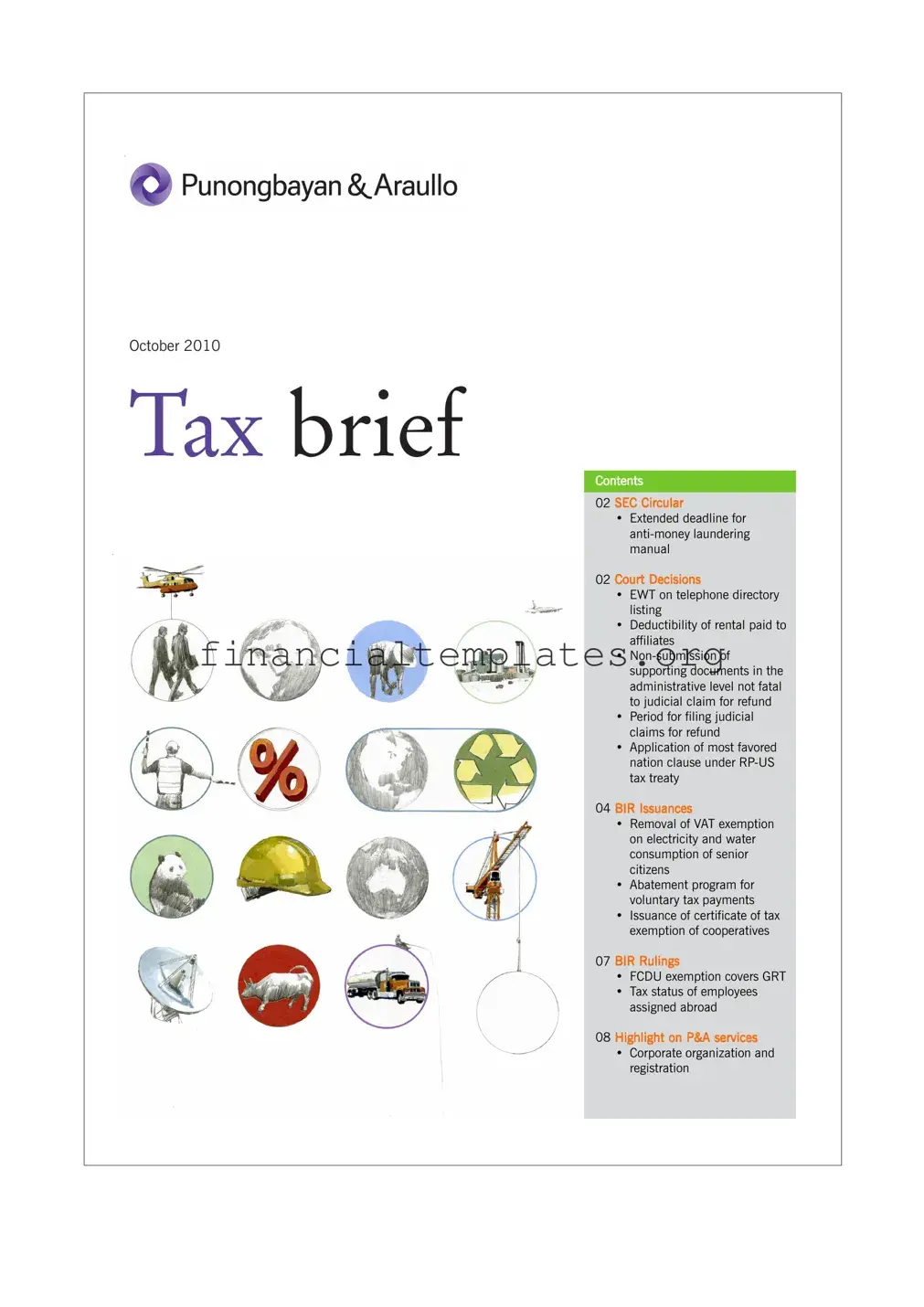Get Tax Exemption For Cooperatives Form
In the landscape of fiscal policies and regulations, the Tax Exemption for Cooperatives form plays a crucial role for cooperatives navigating the complexities of tax obligations. Specifically codified in the October 2010 Tax brief, this document outlines several pivotal legal and regulatory changes affecting cooperatives, among other entities. It encompasses various directives, including an extended deadline by the Securities and Exchange Commission for submitting anti-money laundering manuals, vital court decisions touching upon matters like expanded withholding taxes and the deductibility of rental payments, and specific guidelines for filing judicial claims for refunds. Furthermore, it delves into the Bureau of Internal Revenue's issuance concerning the removal of VAT exemptions for certain senior citizen utilities, the launch of an abatement program aimed at encouraging voluntary tax compliance, and the imperative processes for cooperatives to secure certificates of tax exemption as stipulated under the new Cooperative Code (RA 9520). This comprehensive brief serves not only as a regulatory update but also as a guide for cooperatives to understand and comply with their tax-related obligations, ensuring they leverage the tax benefits rightfully available to them.
Tax Exemption For Cooperatives Example

October 2010
Tax brief
Contents
02 SEC Circular
• Extended deadline for
02 Court Decisions
• EWT on telephone directory listing
• Deductibility of rental paid to affiliates
•
• Period for filing judicial claims for refund
• Application of most favored nation clause under
04 BIR Issuances
• Removal of VAT exemption on electricity and water consumption of senior citizens
• Abatement program for voluntary tax payments
• Issuance of certificate of tax exemption of cooperatives
07 BIR Rulings
• FCDU exemption covers GRT
• Tax status of employees assigned abroad
08 Highlight on P&A services
• Corporate organization and registration
October 2010 1

SEC Circular
Extended deadline for
The Securities and Exchange Commission (SEC) has extended the deadline for submission of the revised
The submission of the revised
(SEC Memorandum Circular No. 8, Series of 2010, September 23, 2010)
Court Decisions
EWT on telephone directory listing
Income payments made by a holding company to a telecommunication com- pany for advertising and publishing its telephone number in the telephone directory are not considered income payment made to an advertising company subject to 1% (now 2%) expanded withholding tax (EWT). The publication of the telephone directory by the tele- communication company does not make it an advertising company.
However, the Court of Tax Appeals (CTA) held that while it is not considered an advertising company, the income payment made by the holding company to the telecommunication company should be subject to 2% EWT imposed on income payments to “other contractors,” particularly printers, bookbinders, lithographers and publishers under Section 2.57.2(E)(4)(f) of RR
(Covanta Energy Philippine Holdings, Inc. v. Commissioner of Internal Revenue, CTA Case No. 7103, September 15, 2010)
2October 2010

Court Decisions
Deductibility of rental paid to affiliates
In a decision of the CTA in division, the court upheld the disallowance of the BIR of the rent expense claimed by a domestic car manufacturing company on the ground that it is a shareholder of the corporation that owns the rented property. The CTA in division cited Section 29(a)(1)(A) of the 1977 Tax Code [now Section 34(A)(1)(a)(iii), Tax Code], which provides that for rent expense to be deductible for income tax purposes, the taxpayer should have no equity to the property being rented.
Acting on the appeal made by the taxpayer, the CTA en banc held that the company cannot be deemed to have title to or equity in the properties owned by its affiliates as contemplated under Section 29(a)(1)(A) of the 1977 Tax Code on the ground that it has equity in the corporation that owns the leased property. The CTA en banc clarified that said Section refers to the equity in the property itself and not to equity in the corporations that own the property subject of lease.
As explained by the CTA en banc, a corporation has a personality distinct and separate from its individual stockholders or members, and is not affected by the personal rights, obligations and transactions of the latter. As lessee, the company cannot be deemed to have equity in the properties owned by or registered in the name of the affiliates without violating the doctrine of separate and distinct juridical personality of the corporation. Extending the condition stated under Section 29(a)(1)(A) of the 1977 Tax Code to the property owned by a corporation, which has a separate and distinct juridical personality, will unduly impose upon the company a burden that is not in the law.
(Mitsubishi Motors Philippines Corporation v. Commissioner of Internal Revenue, CTA EB No. 526 re CTA Case No. 6385, September 7, 2010)
Although the submission of complete documents is necessary to support a claim for refund, failure of the taxpayer to submit the complete documents at the administrative level does not bar the CTA from receiving, evaluating and appreciating evidence in support of the taxpayer’s claim for refund or issuance of tax credit certificate.
In judicial claims for refund, the question of whether or not the evidence submitted by a party is sufficient to warrant the granting of a claim lies within the sound discretion and judgment of the court. According to the CTA, judicial claims are decided based on what has been presented and formally offered, and not on mere allegation of
(Commissioner of Internal Revenue v. Toledo Power Company, CTA EB No. 589 re CTA Case No. 7471, September 15, 2010)
Period for filing judicial claims for refund
Under Section 112(D) of the Tax Code, the Commissioner of Internal Revenue (CIR) is given 120 days from the date of submission of complete documents to decide whether to grant a refund/issue tax credit certificate, or to deny the claim. If the CIR grants or denies the claim, or in case he fails to act within the
In the instant case, the taxpayer filed its administrative claim for refund/issuance of tax credit certificate of its unutilized input VAT on January 4, 2007, which falls within the
The claim was deemed prematurely filed by the CTA. According to the CTA, the taxpayer should have first exhausted the administrative process afforded to him before resorting to judicial remedy. Hence, due to failure to exhaust administrative remedies, the taxpayer’s claim for refund/issuance of tax credit certificate of its unutilized input VAT was denied.
(Mindanao II Geothermal Partnership v. Commissioner of Internal Revenue, CTA Case No. 7595, September 14, 2010)
October 2010 3

Court Decisions
Application of most favored nation clause under
Based on a comparison made of the provisions of the
The CTA ignored the BIR ruling secured by the taxpayer expressly allowing the taxpayer to apply the 10% preferential tax rate on royalties since the BIR merely cited the provisions of the
(Cargill Philippines, Inc. v. Commissioner of Internal Revenue, CTA Case No. 7656, September 6, 2010)
BIR Issuances
Removal of VAT exemption on electricity and water consumption of senior citizens
The BIR has removed the VAT exemption of electric and water consumption of senior citizens. These items were on the list of goods and services that were previously exempted from VAT under RR
The BIR clarified that the VAT exemption under RA 9994 is limited to the purchase of goods and services of senior citizens entitled to the 20% discount. Hence, water and electricity bills, which are granted only a 5% discount, cannot
be entitled to the VAT exemption.
(Revenue Regulations No.
4October 2010

BIR Issuances
Abatement program for voluntary tax payments
The BIR launched an abatement program, which gives taxpayers who will voluntarily file and pay their taxes and/or amend their tax returns to pay their correct tax liabilities the opportunity to settle their tax deficiencies without paying any surcharge and/or compromise penalties. The abatement program covers all tax types like income tax, VAT, estate tax, and creditable withholding tax.
The abatement program is available to all taxpayers who have not been issued a Letter of Authority (LA) or its equivalent for the tax period or for the return applied for the abatement program. As another condition to qualify for the program, the return or tax type should also not be the subject of any pending or final and executory court decision for criminal case for tax evasion and other criminal offenses under the Tax Code. In case an amended return is filed, the amendment should result in additional tax payment (increase in revenues or decrease in deductions or increase in both but resulting to a higher tax due) for the taxpayer.
Those who are interested in availing of the program must execute a declaration of availment of abatement and submit it to the BIR office where he is registered, with the following attachments, all in three copies:
a.For original tax returns - Photocopy of the return filed and attachments and proof of payment of taxes
b.For amended returns - Photocopy of the original and amended return, with attachments, and proof of payment for both
Filing and payment, including for returns relating to importations, may be done with an Authorized Agent Bank (AAB) or Revenue Collection Officer (RCO) within the taxpayer’s RDO or through the eFPS in case of eFPS taxpayers. The declaration of availment of the abatement program must be filed on or before October 29, 2010.
An initial evaluation on the completeness of the application shall be done within two days from receipt, and approval/ disapproval shall be issued within 30 days. Otherwise, the abatement shall be deemed approved.
(Revenue Regulations No.
Issuance of certificate of tax exemption of cooperatives
The BIR has issued the following guidelines in the processing and confirmation of the tax incentives granted to cooperatives under RA 9520.
A. Guidelines and procedures
In applying for certificate of exemption, the cooperative should observe the following guidelines and procedures:
1.All cooperatives previously registered with and confirmed by the Cooperative Development Authority (CDA) under RA 6938 and RA 6939 are deemed regis- tered under RA 9520 (new Cooperative Code), and a new certificate of registration will be issued by the CDA.
2.All cooperatives must first secure their new certificate of exemption from the CDA before they can apply for Certificate of Tax Exemption from the BIR. The application should be filed and acted upon by the Revenue District
Office and Revenue Region having jurisdiction over the principal place of business of the cooperative.
3.All cooperatives applying for tax exemption shall be required to update their BIR registration with the RDO having jurisdiction over their principal place of business. The application for Registration Update of the cooperative may be processed simultaneously with its application for tax exemption.
4.The updated Certificate of Registration shall be issued and released by the BIR to the coopera- tive together with the Certificate of Tax Exemption within ten working days from the submission of complete documents.
5.The Certificate of Tax Exemption shall be valid for a period of five years from the date of issue or date of effectivity, unless it is revoked or cancelled. The original Certificate of Tax Exemption may be renewed by filing BIR Form 1945 and submitting all documentary requirements at least two months before the expiration of the certificate of exemption. The renewal certificate shall be valid for another five years, unless it is revoked for a cause.
October 2010 5

BIR Issuances
B. Documentary requirements
The following documents should be filed with the BIR by cooperatives that are applying for certificate of tax exemption.
1.Original issuance of Certificate of Tax Exemption – Cooperatives that are applying for the first time for Certificate of Tax Exemption are required to submit a duly accomplished Application of Tax Exemption for Cooperatives (BIR Form 1945), together with the certified true copies of the following:
a.Articles of cooperation and bylaws, as certified by CDA
b.New certificate of registration issued by the CDA under RA 9520
c.Current certificate of good standing issued by the CDA effective on date of application
d.BIR certificate of registration
In addition, the cooperative should submit an original copy of certification under oath of the list of cooperative members with their respective Taxpayer Identification Number (TIN) and their capital contributions prepared by an authorized official of the cooperative. Those without TIN may temporarily use their National Statistics Office (NSO) number or other government issued ID number or Community Tax Certificate number. However, the cooperative must require all its members to secure a TIN for the updated list of members to be submitted together with the regular filing of the cooperative’s annual income tax return.
2.Renewal of Certificate of Tax Exemption – To be attached to the duly accomplished BIR Form 1945 (Certificate of Tax Exemption for Cooperatives) are the certified true copies of the following documents:
a.Certificate of registration issued by the CDA under RA 9520
b.Latest articles of cooperation and bylaws of the cooperative
c.Current certificate of good standing from CDA, effective on the date of application
d.Latest financial statements of
the immediately preceding year duly audited by a BIR
accredited independent certified public accountant
All applications for tax exemption filed by cooperatives with the BIR Law Division prior to the issuance of the Revenue Memorandum Order (RMO)
C. Reportorial requirements
The following documents and information are required to be submitted yearly to the BIR together with the filing of the cooperative’s Annual Information Return (BIR Form 19702) due on or before the 15th day of the fourth month following the close of the calendar year:
1.Certified true copy of the current and effective certificate of good standing from CDA
2.Certified true copy of certification under oath by the chairperson/ general manager stating, among others, the type of cooperative, amount of accumulated reserves, and amount of net surplus for the year
3.Original copy of the yearly summary of records of transactions
4.Original copy of certification under oath by the chairperson/ general manager of the list of members, their respective TINs, and the share capital contribution of each member as of the year end concerned
(Revenue Memorandum Order No.
6October 2010

BIR Rulings
FCDU exemption covers GRT
The BIR has now recognized that the exemption of foreign currency deposit units (FCDUs) of banks from all taxes, as restored via RA 9294, covers the gross receipts tax (GRT).
Earlier, in BIR Ruling No.
After a careful
In RR
(BIR Ruling No.
Tax status of employees assigned abroad
Filipino employees of a foreign company who are assigned abroad for less than 183 days are still considered resident citizens of the Philippines subject to the Philip- pine income tax on income derived from services performed within and outside the Philippines.
Under Section 22(E) of the Tax Code, in order for the employees to be considered
(BIR Ruling No.
October 2010 7

Highlight on P&A services
Corporate organization and registration
We render advisory services and assistance on the implementation of, and in obtaining required government approvals for, a client’s plan to undergo various types of corporate restructuring arrangements such as increase or decrease of capital stock, conversion of debt to equity, undergoing equity restructuring or
Tax Brief is a regular publication of Punongbayan & Araullo (P&A) that aims to keep its clientele, as well as the general public, informed of various developments in taxation and other related matters. This publication is not intended to be a substitute for competent professional advice. Even though careful effort has been exercised to ensure the accuracy of the contents of this publication, it should not be used as the basis for formulating business decisions. Government pronouncements, laws, especially on taxation, and official interpretations are all subject to change. Matters relating to taxation, law and business regulation require professional counsel.
We welcome your suggestions and feedback so that the Tax Brief may be made even more useful to you. Please get in touch with us if you have any comments and if it would help you to have the full text of the materials in the Tax Brief.
Lina Figueroa
Principal, Tax Advisory & Compliance Division
T +632
F +632
E Lina.Figueroa@ph.gt.com
P&A is a member firm within Grant Thornton International Ltd. Grant Thornton International is one of the world’s leading organizations of independently owned and managed accounting and consulting firms.
If you would like to know more about our corporate organization and registration services, please contact:
Eleanor L. Roque
Division Head, Tax Advisory & Compliance
T + 632 886 5511 ext. 550
F + 632 886 5511 ext. 606
E Lea.Roque@ph.gt.com
8October 2010
Document Specifics
| Fact Name | Description |
|---|---|
| SEC Circular Deadline Extension | The Securities and Exchange Commission extended the deadline for the submission of anti-money laundering manuals to December 8, 2010, allowing covered institutions more time to comply with guidelines. |
| EWT on Telephone Directory Listing | Payments for telephone directory listings by a holding company to a telecommunication company are subject to a 2% expanded withholding tax (EWT), not as advertising but under "other contractors." |
| Deductibility of Rental Paid to Affiliates | The Court of Tax Appeals ruled that a company cannot be deemed to have equity in properties owned by its affiliates, thereby allowing the deduction of rental expenses for income tax purposes. |
| Issuance of Certificate of Tax Exemption for Cooperatives | The BIR issued guidelines for cooperatives to apply for a Certificate of Tax Exemption under RA 9520, outlining steps for initial registration and renewal valid for five years. |
Guide to Writing Tax Exemption For Cooperatives
Understanding the steps to properly fill out tax-related forms is essential for cooperatives seeking to benefit from tax exemptions. These procedures ensure that cooperatives comply with tax regulations while taking advantage of incentives designed to support their operations. In this context, we'll focus on the step-by-step instructions to complete the application process for obtaining a Certificate of Tax Exemption for cooperatives, following guidelines from relevant tax regulations.
- Ensure your cooperative is duly registered with the Cooperative Development Authority (CDA) under the latest regulations, which will require a new certificate of registration.
- Before applying for a Certificate of Tax Exemption from the Bureau of Internal Revenue (BIR), obtain a Certificate of Exemption from the CDA. This step is imperative as it forms the basis of your application with the BIR.
- Update your cooperative's BIR registration to reflect any changes or updates in your cooperative's status, location, or operational scope. This update must be made at the Revenue District Office (RDO) responsible for the area where your cooperative's principal place of business is located.
- Prepare and submit your application for a Certificate of Tax Exemption to the same RDO. It's crucial to ensure all required documents accompany your application to avoid delays.
- Once submitted, the RDO, together with the Revenue Region, will review your application. The overarching goal is to verify your cooperative's compliance with tax laws and eligibility for exemption.
- Wait for the issuance and release of your updated Certificate of Registration and the Certificate of Tax Exemption from the BIR. According to the guidelines, this process should not take more than ten working days, provided all submitted documents are complete and in order.
- Remember, the Certificate of Tax Exemption is valid for five years from the issue date or the date of effectivity unless revoked or cancelled. To maintain your cooperative's tax-exempt status, apply for renewal by filing BIR Form 1945 and submitting all necessary documents at least two months before your current certificate expires. The renewal will extend the exemption for another five years, subject to compliance with all regulatory requirements.
It's essential to approach this process with diligence and attention to detail, ensuring all information provided is accurate and up-to-date. By following these steps, cooperatives can effectively navigate the tax exemption application process, supporting their mission to serve their members and communities efficiently.
Understanding Tax Exemption For Cooperatives
What is the purpose of the Certificate of Tax Exemption for cooperatives?
The Certificate of Tax Exemption is designed to confirm the tax incentives granted to cooperatives under Republic Act 9520, also known as the new Cooperative Code. It acknowledges a cooperative's eligibility for certain tax exemptions and benefits in accordance with the law.
How can a cooperative apply for the Certificate of Tax Exemption?
To apply, a cooperative must first secure a new certificate of registration from the Cooperative Development Authority (CDA), as all cooperatives registered under RA 6938 and RA 6939 are deemed registered under RA 9520. Following this, they can then apply for the Certificate of Tax Exemption from the BIR by submitting the required documents to the Revenue District Office or Revenue Region that has jurisdiction over their principal place of business.
Are there any prerequisites for a cooperative to apply for tax exemption with the BIR?
Yes, cooperatives must first obtain their new certificate of registration from the CDA. After that, they must update their BIR registration to the latest status of their cooperative’s information. Only then can they proceed with the application for tax exemption by presenting their updated certificate of registration among other documents.
What are the documentary requirements for applying for the Certificate of Tax Exemption?
The exact documents required can vary, but generally include the cooperative's updated certificate of registration from the CDA, application form, and other supporting documents that demonstrate the cooperative's eligibility and adherence to relevant regulations under RA 9520.
How is the application for the Certificate of Tax Exemption processed?
Upon submission of complete documents, the application will be filed and acted upon by the appropriate Revenue District Office and Revenue Region. The process includes updating the cooperative's BIR registration, after which the Certificate of Tax Exemption is issued and released within ten working days.
What is the validity period of the Certificate of Tax Exemption?
The certificate is valid for five years from the date of issue or the date of effectivity, unless earlier revoked or cancelled. Before its expiration, cooperatives can apply for renewal, which extends the validity for another five years, subject to compliance with the prevailing tax code and regulations.
Can the Certificate of Tax Exemption be revoked or cancelled?
Yes, the certificate may be revoked or cancelled prior to its expiration if the cooperative violates any provisions of RA 9520 or fails to comply with tax laws and regulations, among other grounds determined by the BIR.
How does a cooperative renew its Certificate of Tax Exemption?
To renew, a cooperative must file BIR Form 1945 and submit all documentary requirements at least two months before the expiration of the current certificate. If approved, the renewal certificate will also be valid for another five years, unless revoked for a cause.
What are the consequences for a cooperative operating without a valid Certificate of Tax Exemption?
A cooperative operating without a valid certificate may face penalties, be required to pay taxes from which they could have been exempted, and may also lose other privileges granted under RA 9520 until their compliance and registration are duly updated and certified by the BIR.
Common mistakes
Filling out the Tax Exemption For Cooperatives form incorrectly can lead to potential issues, including delays in processing, rejection of the application, or even penalties. Avoid these common mistakes to ensure the smooth handling of your cooperative's tax exemption application:
Not securing the updated Certificate of Exemption from the Cooperative Development Authority (CDA) before applying for the Certificate of Tax Exemption from the BIR. The updated certificate from CDA is a prerequisite for BIR application.
Failing to update the cooperative's BIR registration along with the application for tax exemption. It is required to keep the BIR records current and should be processed simultaneously with the tax exemption application.
Submitting incomplete documents. Ensure all necessary documents are complete, accurate, and up-to-date to avoid delays or rejection of the application.
Missing the submission deadline for the declaration of availment of the abatement program or any related tax benefits under specific BIR issuances. This can lead to missing out on potential benefits allowed for voluntary compliance.
Not applying for renewal of the Certificate of Tax Exemption at least two months before its expiration. Late applications may lead to a period where the cooperative is not covered by a valid tax exemption certificate.
To avoid these common mistakes, it is crucial that cooperatives pay careful attention to detail, plan ahead for renewals, and ensure they fully understand the requirements as outlined by the BIR and CDA guidelines. Being methodical and thorough in the preparation and submission of tax forms will help safeguard your cooperative's benefits under the law.
Documents used along the form
When dealing with the Tax Exemption for Cooperatives form, there are several other important documents and forms that often come into play. These documents help ensure that the cooperative is compliant with all applicable laws and regulations and that it can fully benefit from any tax exemptions or incentives. Here’s a closer look at some of these essential documents:
- Certificate of Registration from the Cooperative Development Authority (CDA): Before applying for a tax exemption, cooperatives must be registered with the CDA. This certificate confirms the legal status of the cooperative and is a prerequisite for the tax exemption application with the Bureau of Internal Revenue (BIR).
- Application for Certificate of Tax Exemption: This application is filed with the BIR after receiving the Certificate of Registration from the CDA. It's a formal request for tax exemption status under the relevant cooperative laws.
- Updated BIR Certificate of Registration: Cooperatives applying for tax exemption must also update their BIR registration. This ensures that their records reflect their current tax-exempt status and any other changes in their registration information.
- Declaration of Availment of Abatement: This declaration is submitted to the BIR for cooperatives looking to settle tax deficiencies under the abatement program without additional surcharges or penalties. It's crucial for maintaining compliance and taking advantage of tax relief offers.
- Anti-Money Laundering Manual: Given the SEC’s requirement for certain institutions to submit an anti-money laundering manual, cooperatives engaged in relevant activities might need this as part of their compliance documents.
- Financial Statements and Tax Returns: While not specific forms, regularly filed financial statements and tax returns are vital documents. They support applications for tax exemptions and other incentives by demonstrating the cooperative’s financial activities and compliance.
- Proof of Payment for Taxes and Fees: When filing for tax exemption or availing of programs like the abatement program, cooperatives need to show proof of payment for any taxes and fees already paid. This helps in the processing of their applications and in availing of the benefits smoothly.
Each document plays a critical role in navigating the complex landscape of tax exemptions and compliance for cooperatives. By understanding and properly managing these forms, cooperatives can ensure they are maximizing their benefits while adhering to all regulatory obligations. It’s about being prepared, informed, and compliant - the key ingredients to running a successful cooperative in today’s regulatory environment.
Similar forms
The Securities and Exchange Commission (SEC) Memorandum Circular on the anti-money laundering manual echoes the framework seen in IRS guidance documents concerning the Foreign Account Tax Compliance Act (FATCA). Just as SEC entities must submit anti-money laundering manuals to comply with regulations, financial institutions in the U.S. are required to adhere to FATCA by reporting financial accounts held by U.S. taxpayers or foreign entities in which U.S. taxpayers hold a substantial ownership interest. Both sets of regulations are aimed at curbing money laundering and tax evasion, requiring meticulous record-keeping and reporting by regulated entities.
The Court of Tax Appeals decision on the deductibility of rental payments to affiliates is conceptually similar to IRS rulings on related-party transactions. In the U.S., the Internal Revenue Code (IRC) Section 482 provides authority to the IRS to adjust income, deductions, credits, or allowances between related parties to prevent evasion of taxes or to clearly reflect income. Both the Philippine court's ruling and the IRS's application of Section 482 underscore the principle that financial transactions between related parties must meet specific arm's length standards to be recognized for tax purposes, ensuring that the allocation of income and expenses is fair and not designed to minimize tax liabilities artificially.
The principle illustrated by the discussion on the non-submission of supporting documents being not fatal to a judicial claim for a tax refund has a counterpart in U.S. tax procedure. In the United States, the Tax Court allows taxpayers to introduce new evidence in court that was not presented to the IRS during the administrative phase of a tax dispute. This reflects a shared understanding in tax jurisprudence that a fair adjudication of tax claims should consider all relevant evidence, allowing for justice to be served even when procedural errors occur at the administrative level.
The period for filing judicial claims for a refund, as discussed regarding Philippine tax law, parallels the U.S. tax system's statute of limitations for claiming a refund. In the U.S., taxpayers typically have a three-year window from the time the original return was filed or two years from the time the tax was paid (whichever is later) to claim a refund. This rule, like the Philippine counterpart, sets time boundaries within which taxpayers must act to recover overpaid taxes, balancing the government's need for fiscal stability against taxpayers' rights to reclaim funds.
Lastly, the application of the most favored nation clause under tax treaties, in the context of the RP-US tax treaty, finds its resemblance in how the U.S. negotiates and applies its network of tax treaties. The U.S. employs various non-discrimination and most favored nation clauses in its treaties to ensure that its residents and companies are not subject to a higher rate of tax on the income derived from foreign sources than residents or companies of other countries. This principle promotes international trade and investment by preventing treaty partners from imposing more burdensome taxes on each other's residents or enterprises than on those of any third country.
Dos and Don'ts
When dealing with the Tax Exemption for Cooperatives form, it is critical to navigate the process with diligence and attention to detail to ensure compliance and accuracy. Here are some important do's and don'ts to guide you through this process:
Do's:
- Do secure your cooperative's new certificate of exemption from the Cooperative Development Authority (CDA) before applying for the Certificate of Tax Exemption from the BIR, as this is a prerequisite.
- Do ensure your cooperative is updated with the BIR registration at the Revenue District Office (RDO) having jurisdiction over your principal place of business. This is essential for both initial and renewal applications.
- Do submit all required documents completely and accurately to avoid delays in the processing of your tax exemption certificate.
- Do take note of the validity period of the Certificate of Tax Exemption, which is five years from the date of issuance, and plan ahead for timely renewal.
- Do apply for renewal at least two months before the expiration of your current Certificate of Tax Exemption to ensure continuous tax-exempt status.
Don'ts:
- Don't neglect the need for a new Certificate of Registration issued by the CDA under RA 9520, as having the up-to-date registration is fundamental for the tax exemption.
- Don't submit incomplete documents, as this will lead to unnecessary delays or even rejection of your tax exemption application.
- Don't overlook the BIR's guidelines and procedures for applying for the Certificate of Tax Exemption. Each step outlined by the BIR is crucial for a successful application.
- Don't wait until the last minute to file your application for either the initial certificate or the renewal. Late applications can complicate your cooperative’s tax status.
- Don't ignore the requirement to update your cooperative's BIR registration alongside the application for tax exemption. This update is crucial and should be processed simultaneously with the tax exemption application.
Following these guidelines meticulously will aid your cooperative in ensuring that tax exemption processes are handled efficiently, within compliance, and in favor of your cooperative's fiscal responsibilities.
Misconceptions
When it comes to understanding the tax exemption processes for cooperatives, there are several misconceptions that often surface. These misunderstandings can lead to confusion and, in some cases, non-compliance. Below, we detail ten common misconceptions about the Tax Exemption for Cooperatives and provide clarity on each.
All cooperatives automatically qualify for tax exemptions. This is incorrect. Cooperatives must meet specific criteria set by the Cooperative Development Authority (CDA) and the Bureau of Internal Revenue (BIR) to qualify for tax exemptions. This includes securing a new certificate of exemption from the CDA under RA 9520.
Securing a Certificate of Tax Exemption is a one-time process. Actually, the Certificate of Tax Exemption issued by the BIR is valid for five years from its issuance date. Cooperatives need to renew this certificate prior to its expiration to maintain their tax-exempt status.
There's no need for cooperatives to update their BIR registration. Contrary to this belief, cooperatives applying for tax exemption must update their registration with the BIR as part of the application process for the Certificate of Tax Exemption.
The application for tax exemption can be done at any BIR office. This process is specific to the Revenue District Office (RDO) and Revenue Region that have jurisdiction over the principal place of business of the cooperative. The cooperative's tax exemption documents must be filed and processed accordingly.
Cooperatives are exempt from all taxes. While cooperatives enjoy certain tax exemptions under RA 9520, they are still subject to specific taxes, depending on their transactions. The tax exemption primarily covers income tax but may not apply to other indirect taxes unless specified.
The process of obtaining a tax exemption certificate is lengthy and complex. The BIR aims to issue and release the Certificate of Tax Exemption within ten working days from the submission of complete documents, making it a reasonably straightforward process.
Any missed documentation during the initial application will lead to an outright rejection. Cooperatives have an opportunity to submit any lacking documents as part of their application for a Certificate of Tax Exemption. While the application may be delayed, missing initial documentation does not automatically mean rejection.
The BIR's abatement program for voluntary tax payments is available to all types of taxes and taxpayers without constraints. The abatement program is indeed comprehensive, but it specifically targets taxpayers who have not been issued a Letter of Authority (LA) for the tax period in question. It is designed to encourage the settlement of tax deficiencies voluntarily.
Upon receiving a Certificate of Tax Exemption, cooperatives no longer need to file tax returns. Cooperatives may still need to file tax returns or certain documents with the BIR, despite their tax-exempt status. This ensures compliance and proper documentation of their tax-exempt transactions.
VAT exemptions apply to all transactions of the cooperatives. VAT exemptions are specific and do not cover all transactions. For instance, the removal of VAT exemption on electricity and water consumptions for senior citizens shows that exemptions can be subject to change and may not cover every aspect of a cooperative's operations.
Clarifying these misconceptions is critical for cooperatives to ensure compliance with the BIR requirements and to make the most of the tax incentives available to them under Philippine law.
Key takeaways
Filing and using the Tax Exemption for Cooperatives form involves comprehension and adherence to several critical points. Understanding these can greatly smooth the process and ensure compliance with relevant laws and regulations. Below are key takeaways that are essential for anyone navigating this process:
- The BIR has laid down specific guidelines and procedures for cooperatives applying for a Certificate of Tax Exemption under RA 9520, ensuring that cooperatives are aware of the process and requirements.
- Before a cooperative can apply for a BIR Certificate of Tax Exemption, it is mandatory to secure a new certificate of exemption from the Cooperative Development Authority (CDA), signifying the importance of this document in the application process.
- Cooperatives are required to update their BIR registration in conjunction with their application for tax exemption, highlighting the need for the cooperative's records to be current and in line with existing regulations.
- The application for tax exemption is processed and decided upon by the Revenue District Office and Revenue Region that have jurisdiction over the cooperative’s principal place of business, indicating the localized nature of the process.
- Upon submission of complete documents, the updated Certificate of Registration and the Certificate of Tax Exemption are issued typically within ten working days, outlining the timeline applicants can generally expect.
- The Certificate of Tax Exemption comes with a validity period of five years from the date of issue, after which it may be renewed for another five years, provided it is not revoked or cancelled, emphasizing the temporal nature of the exemption.
- A renewal application for the Certificate of Tax Exemption requires the submission of BIR Form 1945 along with all necessary documentary requirements at least two months before the certificate’s expiration, signifying the proactive steps needed to maintain the exemption status.
- Failure to adhere to the specific guidelines and timelines can result in the revocation or cancellation of the tax exemption status, underscoring the importance of compliance and timely submission of requirements.
Understanding these key aspects is crucial for cooperatives navigating the process of applying for or renewing a Certificate of Tax Exemption. Compliance with these guidelines ensures that cooperatives can benefit from the tax incentives granted under the law, contributing to their growth and sustainability.
Popular PDF Documents
IRS 8283 - It serves as a cross-reference for the IRS to ensure charitable organizations report receiving the declared items.
Sba 1201 Loan Forgiveness - Offers guidance on making corrections to remittances and handling overpayments, providing clear next steps for employers.
